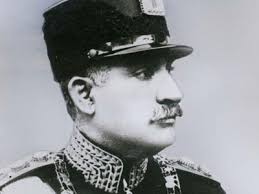Pope Pius XII has had an ambiguous history until the opening of the Vatican archives this book was based on. The Pope at War: The Secret History of Pius XII, Mussolini, and Hitler ends the ambiguity about the record of Pius XII during World War II and makes clear he chose to preserve the Vatican and the institution of the Church and never condemn Nazis or Fascists while they were in power.
Beginning in June 1945, when the guns were silent, the Vatican relentlessly defended Pope Pius XII. The task was easier until March 2020 when the archives of Pius XII were opened. Access to the archives would have to wait several months until COVID restrictions were relaxed, but when the doors were opened, David I. Kertzer was there.
The result is a 500-page story of a Pope, the leader of the Catholic Church beginning in March 1939, who chose to preserve the Church as an institution and the Vatican itself rather than exercise moral leadership.
His predecessor, Pius XI, was, by Kertzer's account, a man who saw evil in Fascism and Naziism. He was set to publicly denounce both regimes in February of 1939 when he fell ill. His remarks were printed in 150 copies for distribution to Church leaders. When Pius XII became Pope, he had every copy of his predecessor's attack on Fascists and Nazis destroyed.
By March of 1939, Catholics in Germany, Austria and other lands the Nazis occupied were being persecuted. Pius XII was secretly negotiating the Nazis for better treatment for Catholics, but he believed the Nazis and Fascists would win the coming war.
Further, Pius XII, like the Germans who supported Hitler, were more afraid of communism than anything else.
Then in September 1939, the Nazis conquered Poland and divided the demolished country with the Soviets. Hitler and Stalin were persecuting and killing Polish Catholics. Church leaders were clamoring for the Pope to condemn the Nazis. Later they were joined by French, Dutch, Belgian, and other Catholic leaders. Pius XII never condemned the Nazis publicly.
By 1941, the reports of extermination of the Jews reached the Pope through his own envoys and Italian military leaders. He knew in considerable detail that a million Jews were dead and the pace of slaughter was accelerating. Pope Pius XII never said the word Jew during the entire war. He never went further than to regret the death of minorities.
In 1943 when the fascist government in Italy failed and the Nazis occupied Italy, Pius XII did his best to protect Rome and the Vatican. With the Nazis in charge, the Jews who were already in fascist camps and ghettos were deported to death camps. Pius XII made some effort to save Jews who were converts, but nothing for Italian Jews. During his papacy, the Vatican newspaper published justifications for keeping Jews away from Christians in ghettos that were Church policy hundreds of years before.
In 1941, Pius XII spoke to a Catholic youth group about maintaining morality and staying away from movies and other temptations. It is sadly funny to hear the moral leader of a world Church talking about morality when he has a perfect record of never condemning persecution, death and murder.
Pius XII also made passionate pleas to stop the bombing of Rome in 1943 and 44 and not to bomb the Vatican. Winston Churchill was especially vehement in rejecting the Pope's pleas. Pius XII had never condemned the Nazi bombing of London nor spoke out about the suffering of British Catholics under the Blitz.
The Pope and the Vatican survived the war. When the shooting stopped the rationalizing began. The Pope who never said Jew and never condemned Nazis stayed in office until 1958. Then his canonization process began. Hopefully, the archives that are the basis of Kertzer's excellent book will stop the sainthood of a man who chose to save the Vatican and the Church and never condemn evil. His place in eternity is better described in Canto 19 of Inferno by Dante Aligheri.
First 26 books of 2022:
Galapagos by Kurt Vonnegut
The Echo of Greece by Edith Hamilton
If This Isn't Nice, What Is? by Kurt Vonnegut
Civil Rights Baby by Nita Wiggins
Lecture's on Kant's Political Philosophy by Hannah Arendt
The Netanyahus by Joshua Cohen
Perelandra by C.S. Lewis
The Federalist Papers by Alexander Hamilton, James Madison and John Jay
First Principles by Thomas Ricks
Political Tribes by Amy Chua
Book of Mercy by Leonard Cohen
Prisoners of Geography by Tim Marshall
Understanding Beliefs by Nils Nilsson
1776 by David McCullough
The Life of the Mind by Hannah Arendt
Civilization: The West and the Rest by Niall Ferguson
How to Fight Anti-Semitism by Bari Weiss
Unflattening by Nick Sousanis
Marie Curie by Agnieszka Biskup (en francais)
The Next Civil War by Stephen Marche
Fritz Haber, Volume 1 by David Vandermeulen













